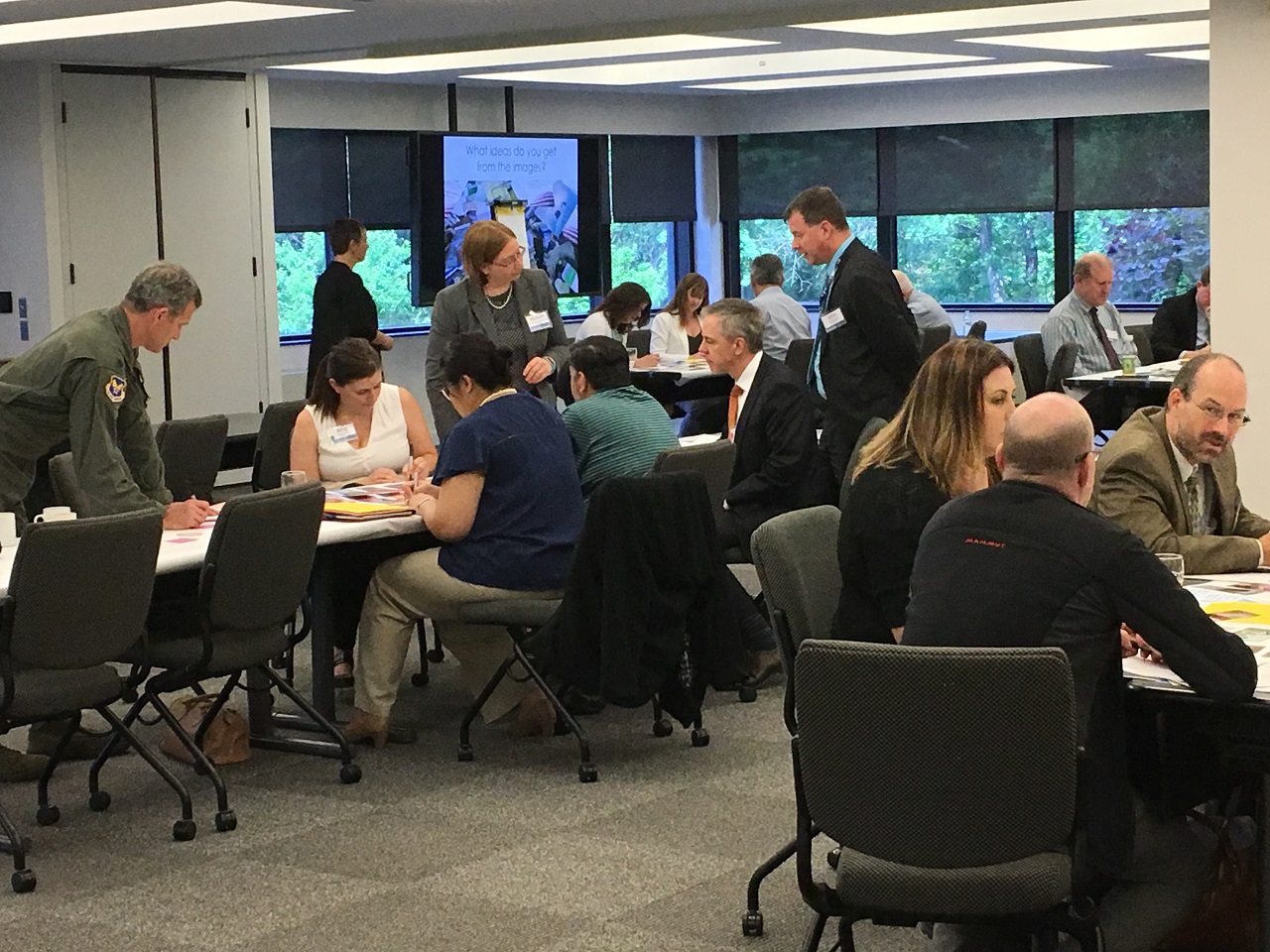
Twenty years ago, passengers could arrive at the airport within minutes of their flight’s boarding time, with little concern of any barriers causing them delays. They could carry bottled water, baseball bats, and even scissors through the security line. Dropping off a child to visit their grandparents? No problem, as escorting them right up to the gate was a normal practice. Although airports are much more secure today, the check-in, security, and boarding process is more time-consuming and intensive which affects the passenger experience. Since the aviation experience has changed so drastically, it begs the question – what will airport security look like 20 years from now?
That question is one of the reasons the Department of Homeland Security (DHS) Science and Technology Directorate (S&T) Apex Screening at Speed (Apex SaS) Program partnered with Pacific Northwest National Laboratory (PNNL) to host the second annual Aviation Security Futures Workshop recently in Reston, Virginia. The unique format provided a forum for proactive, forward thinking discussions of what aviation security will, or could, look like in 10 to 20 years in order to help guide strategies and support investment decisions focused on advancing the future of aviation security.
“Apex SaS works directly with the Transportation Security Administration (TSA) to invest in technologies that will help aviation security in the near and long term,” said Dr. John Fortune, S&T’s Apex SaS Program Manager.
Building on outcomes from the inaugural workshop in September 2017, this year’s objective was to take a closer look at critical aviation security issues. The workshop brought together experts in aviation security and related disciplines to participate in focus groups and discussions on biometrics, human factors, big data, location and tracking technologies, autonomous vehicles, and future airport design.
S&T, TSA, and other key aviation stakeholders – including those from airports, airlines, airport design firms, intermodal partners, security providers, privacy groups, and universities – spent two days exchanging ideas on opportunities, challenges, and the changing landscape that will impact aviation security and the traveler experience.
The Futures Workshop brought in diverse expert speakers to provoke stimulating discussions on change and innovation. Lt. Col. Steven Webber, Deputy Chief of the Defense Threat Reduction Agency’s Nuclear Detection Division, kicked off the workshop with a discussion about innovation, reminding workshop attendees that in order to think of the future, you need to have a vision and also put in the work to get there. Jay Stanley, senior policy analyst with the American Civil Liberties Union (ACLU) Speech, Privacy, and Technology Project led a group discussion on civil liberty issues related to physical security. While this topic could command a workshop of its own, his presentation shined a light on potential privacy challenges that technology developers should consider when developing technologies involving personal identifiers.
Dr. Amy Climer of Climer Consulting conducted exercises at both last year’s and this year’s workshops that focused the attendees on future thinking. The exercises focused on thinking outside-the-box and brainstorming about what an airport of the future might look like and how to make the screening process more effective, efficient, and less burdensome for passengers. At the end of the exercise, each group presented a subset of the ideas generated in each area. This activity resulted in hundreds of new ideas for the future of aviation security that may be leveraged by industry stakeholders for consideration as technologies and concepts are matured and developed.
S&T is pursuing transformative research and development activities that support a future vision for increasing security effectiveness while dramatically reducing wait times and improving the overall passenger experience. Another workshop is being planned for 2019.


